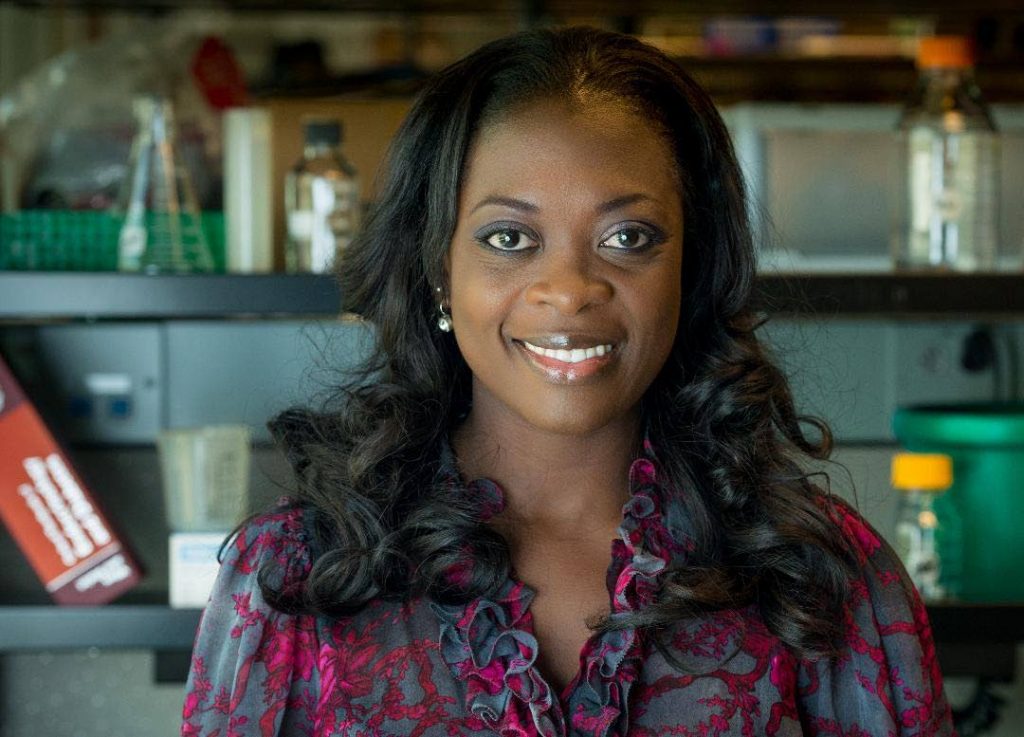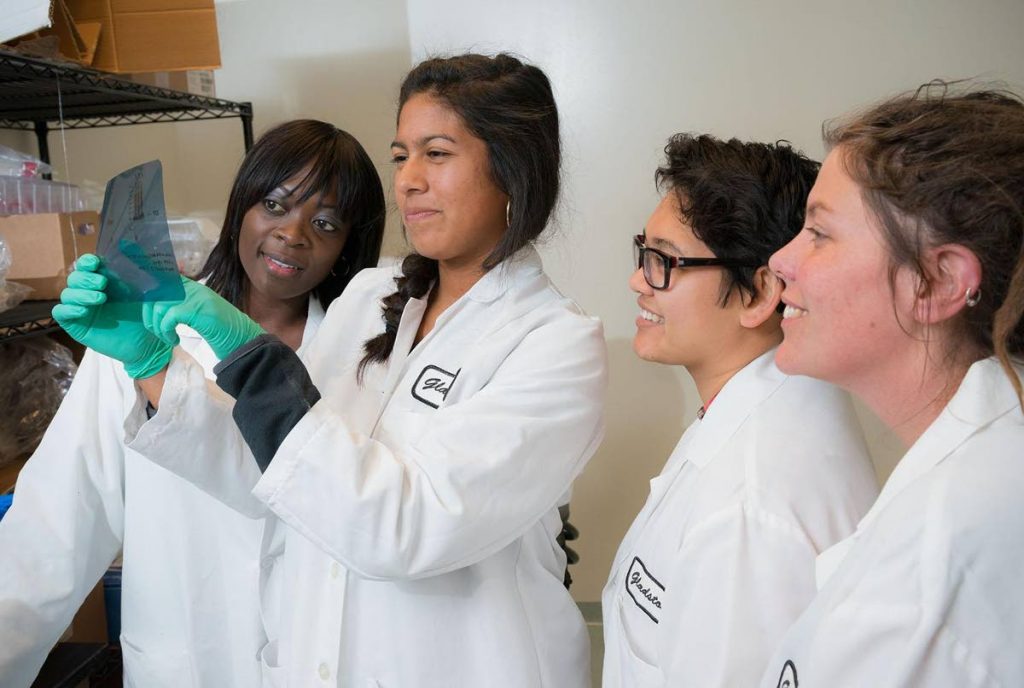Yaisa Andrews-Zwilling searches for Alzheimer's cure

Yaisa Andrews-Zwilling has always been attracted to neuroscience. She remembers being inspired by watching her little sister growing up.
"One of the things that actually inspired me was my little sister. She is ten years younger than I am, and I remember watching her as a baby, slowly growing up, learning to walk, learning to talk and I was just amazed that so many things just came naturally as her brain was developing and I really wanted to learn more about the brain and how it worked,” she told WMN.
Born in Laventille, at 41 she is now living her dream as a neuroscientist and lives in San Francisco.
“I was always very good at math and all of the sciences. Biology, chemistry, physics. So at that time, the only path that I could think of that you would use those sciences would be to become a medical doctor.”
So, when she began her tertiary education journey at the University of the West Indies, where she read for her undergraduate degree in biochemistry and chemistry, it was with the plan to go on to medical school.
“I remember studying, and I was looking at the Krebs’ cycle actually, and it kind of hit me that Kreb is an actual person. It may sound silly now, but before that I never thought of the fact that it was the scientists who were putting all these facts into the textbooks. But it hit me that it’s actual people in labs working out these facts. So I decided then that I would prefer to do the scientific side of healing rather than the tending to patients side of healing.”
She trained at the Max Planck Institute for Experimental Medicine in Gottingen, Germany, where she received both her MSc and PhD in Neuroscience. Under the supervision of Dr Nils Brose, Andrews-Zwilling made important contributions to the field of synapse formation (associated with memory storage in the part of the brain that co-ordinates and regulates muscular activity) during her PhD, studying the effects of protein-protein interactions in the release of neurotransmitters at the pre synaptic active zone. Next, she tackled her post-doctoral training in the US, at the Gladstone Institute, where she focused on apolipoprotein (apo) E, a protein that is essential for the health and repair of neurons, and more specifically, apoE4, which is the strongest genetic factor involved in Alzheimer’s disease. Her research at Gladstone/UCSF expanded from Alzheimer’s disease to traumatic brain injury (TBI), and also focused on finding new drug therapies for Alzheimer’s disease based on apoE4 as a target.
“When I went to Germany to study neuroscience, it was the whole broad field, all aspects of neuroscience which includes developmental, cognitive, pretty much every aspect of the brain, basic connections and how they interact. While there, my grandfather, who was one of my biggest cheerleaders, had a stroke and I came back to Trinidad. He was like six feet two inches tall and he was always a very strong man, very good looking and it really shocked me to see how this stroke kind of crippled him." She had many questions. Why do people get strokes? What predisposes someone to getting a stroke? How can someone recover from it when the brain is damaged? Why do some people heal from it while others decline?

"So that is kind of what pushed me into looking at neurodegeneration. And then my focus switched to Alzheimer’s disease because almost everyone you speak to now has some relative or knows someone who has Alzheimer’s, and I think it is the most debilitating disease that exists right now. This is where you are robbed of your memories at the beginning and then pretty much robbed of your entire self, as the disease progresses. So I really wanted to work on this disease to try and figure out what causes it and try to work on hopefully contributing to finding a cure that can some day stop it.”
Andrews-Zwilling’s next stop was SanBio Inc, where breakthrough technology was combined with the scalability of allogeneic bone marrow stem cells, capable of promoting neural regeneration. With initial clinical trials already demonstrating beneficial results on stroke and TBI, this approach has the potential to address profound unmet clinical needs in patients suffering from a wide variety of neurological disease states. She is currently the director of research at Annexon Biosciences, a company with a mission to "to develop disease-modifying therapeutics for patients suffering with classical complement-mediated autoimmune, ophthalmic and neurodegenerative disorders.”
Her biggest achievement, she said, is getting her PhD. “When I left Trinidad to go to Germany I had all these thoughts of how amazing it was going to be and I was going to live my best life. But when I did move, it was a tough transition moving from the Caribbean to Germany, it was a shock culturally. Then there was the weather. I had never experienced winter before. I had never been that far away from my family and from my friends. So there were definitely points during that period where I thought it maybe wasn’t for me. I wasn’t sure I could make it. It was really difficult. So being able to stick it out and to get that PhD in the end, which I completed while I was eight-and-a-half months pregnant, was a great achievement. I actually graduated on my due date but my son luckily stayed inside for another week, so that I could actually graduate. So getting my PhD and then giving birth to my first son, I would say that it was my greatest achievement to date. And since then it’s only been one thing after the next. I have been truly blessed with great mentors throughout my career, and each step has really been phenomenal as I learn more about neurodegeneration.”
Her biggest challenge, she said, is her work life balance. “I have a husband, two boys, 13 and eight, I have my extended family back in Trinidad and balancing trying to raise my sons to be good strong men and being passionate about my career and trying to give all to both, which is almost impossible. But over time I’ve learned to be more gentle with myself and that sometimes a ball is going to be dropped and you can’t always give 100 per cent, so I think that is my biggest challenge, trying to be a great wife and mother while trying to be an excellent scientist.”
Andrews-Zwilling has been the recipient of many awards, among them Outstanding Young Scientist invited to attend the annual Lindau Nobel Laureate Meeting in Germany; the award for young scientists from the Alzheimer’s Association; and the National Award for Excellence in Science from the National Institute of Higher Education, Research, Science and Technology, the Ministry of Science and Technology and the Caribbean Academy of Sciences. Apart form her commitment to science and the study of neurodegeneration, she loves to travel and experience new cultures but says nothing beats returning to Trinidad for Carnival to play mas and experience everything her beautiful country has to offer.


Comments
"Yaisa Andrews-Zwilling searches for Alzheimer’s cure"